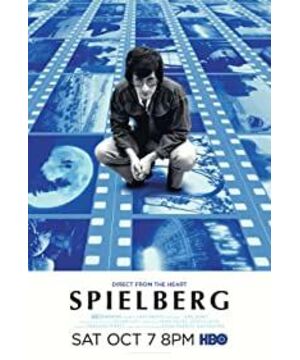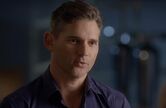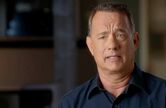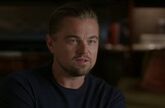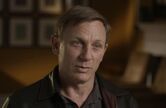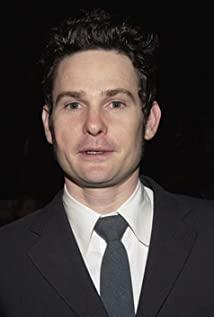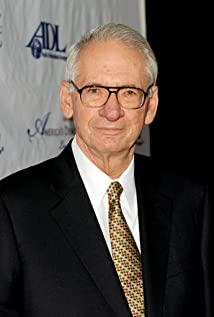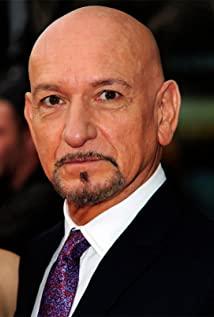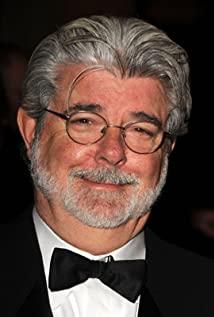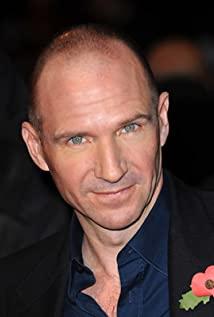At the age of 16, he saw Lawrence of Arabia and almost gave up making movies
And when the film was over, I wanted to not be a director anymore because the bar was too high.
It was the first time, seeing a movie, I realized that there are themes that aren't narrative story themes. There are themes that are character themes, that are personal themes. That David Lean created a portraiture, surrounded the portrait with a mural of scope and epic action, but at the heart and core of "Lawrence of Arabia" is "Who am I"?
I started making movies when I was a young kid, but I remember the time I almost gave up my dream of being a movie director. I must have been 16.
The more confident or certain you are about something, the less the results will be
The more I'm feeling confident and secure about something, the less I'm gonna put out. The more I'm feeling, "Uh-oh, this could be a major problem in getting the story told," I'm gonna work overtime to meet the challenge and get the job done. All right, that's done. I don't know if it's worth it.
Spielberg: And so, I hate the feeling of being nervous, but I need to feel in this moment I'm really not sure what I'm doing. And when that verges on panic, I get great ideas. The more I feel backed into a corner, the more rewarding it becomes when I figure my way out of the corner.
Just before I went off to make "Jaws," I got to meet Henry Hathaway. He was kind of a tough-guy director, and he said, "There's gonna be moments where you're gonna get to the set and you're not gonna know what the hell you're doing. It happens to all of us. You've gotta guard that secret with your life. Let no one see when you're unsure of yourself. Hide that from everybody, or you'll lose the respect of everyone."
The unseen potential danger is more frightening, and the delicate psychological level
I knew that it's gonna take three or four weeks to rebuild the shark, and so we'd have to make up something else that didn't exactly show the shark but gave the sense the shark was near.
The barrels were a godsend, because I didn't need to show the shark as long as those barrels were around. What you don't see is generally scarier than what you do see, and the script was filled with "shark." Shark here, shark there, shark everywhere. The movie doesn't have very much shark in it.
John Williams: If the shark had been available visually, it might have changed the whole psychology of the experience.
Self-awareness in adolescence, the camera is the pen
I didn't have a lot of high esteem for myself, you know, growing up. I just was a lonely guy.
The camera was my pen. I wrote my stories through the lens. And when I was able to say "action" and "cut," I wrested control of my life.
But I didn't know anything about whether I was gonna have a career or where this was gonna go. I just knew that it filled up the time and it gave me a tremendous amount of satisfaction. And the second I finished a movie, I wanted to start a new one because I felt good about myself when I was making a film. But when I had too much time to think, all those scary whispers would start-- start up. It was not fun to be me in between ideas or projects.
Encounter Bole
"If you sign with us, I will support you as strongly in failure as I will in success."
Control of lens language
Steven Bochco: Steven had a gear in his brain that automatically translated words into pictures almost without it being a conscious process for him. There was a unique visual voice there that you had to not only pay attention to, but you had to give somewhat of a free rein to.
Edelstein: Right off the bat, it was clear that no one moved the camera like Steven Spielberg. Other directors had a fantastic sense of space. Orson Welles, you name it, people who understood composition. But the way that Spielberg's camera moved through a shot and then ended up somewhere that completely shifted or intensified the emotion of the scene, that was just a natural gift he had. Who knows where that came from. Who-- but it was his own technique. Move the camera the same way. Other directors have a great sense of space. Just say that Orson Welles understands composition very well. But Spielberg's movement of the camera in one shot, and stopping at a certain place, completely changed or strengthened the emotion of the scene, that is his talent.
George Eckstein called me and said, "Network's really upset that the truck didn't blow up, so they're ordering us to go back to that cliff and blow the truck up." And I said, "I'm not gonna do it." The death of the truck is so agonizing. I said, "I made that truck die slowly." The oil, like blood, dripping off the steering wheel. The wheel slowly rolling to a stop. The fan still going, but the truck's dying. I mean, it's the death of the truck. That's what the audience wants to see. This criminal element paying-- you know, paying the price for what it did to this man. I wouldn't do it. I wouldn't blow up the truck.
Of the medium of expression familiar
Bochco: For Steven, the little screen was an interesting canvas, and obviously he painted on it very well, but he knew that this screen simply wasn't a large enough canvas.
Spielberg: For me, directing is camerawork, and so I'm very on the front line of that. I've gotta set up the shot, I've gotta block the actors, choreograph the movement of the scene, bring the camera into the choreography, figure out when the camera stops, how it moves, how far it moves, what the composition is, so I've always got my eye on the lens, and that's what I do. I even pick the lens I want. For me, the director is the camera technology, so I am always on the front line of the camera. I need to set the lens, isolate the actor's factors, design the action for the lens, bring the lens into the action, determine when the camera stops, how to move, how far it moves, and what the composition looks like, so my eyes always pay attention On the lens, that's what I did. I even choose the lens I want.
Scorsese: His strength is really the ability to be able to tell a story in pictures instinctively. I sometimes watch his pictures on TV without the sound just to see the pictures.
Edelstein: Pauline Kael, one of the most influential film critics of all time, wrote in "The New Yorker" that Steven Spielberg had made one of the most phenomenal debuts in the history of film. She compared him to Howard Hawks in terms of how natural his feel for the medium was. What Kael saw in Spielberg was someone with a real movie sense, but she also said she wasn't necessarily sure there was great depth to go with it. She didn't see a sign of an emerging film artist like Martin Scorsese. What she saw instead was the birth of a new generation Hollywood hand.
Fortunately in an active cultural atmosphere
Spielberg: We were very, very fortunate to be part of that time. The culture was converging. It was filmmakers, it was artists, musicians, performers. It was an incredible, fertile time.
Have never deliberately pursued the spiritual core of the film , and my spiritual level will penetrate into the work through work
I don't search for films consciously that have a spiritual core. There's a spiritual part of myself that happens to bleed over into the work, and so I subconsciously, which is the only choice that's important, will find things that inherently have something of a belief system that's beyond our understanding, that's a little bit out there.
The connection between people
Coyote: For many years I wondered about the universal appeal of this movie, and one day, it hit me. There are no two humans on Earth that are father apart than those humans and that alien creature. And if Elliott, and the mother, and the little girl, and the scientist, could all love and empathize and make a rapprochement and a rapport with this creature, so, too, can any two humans on Earth, and I think that was a subtext that bubbled up through the film and must have touched something, because you don't get many films that are universally loved and appreciated 40 years later. And it spoke to something. Some desire to be able to reach across boundaries and touch other people.
Special care for child actors
Spielberg: I think all of my movies that have dealt with young people and their stories are about the importance of empowering these children to take control of the story, at least take control of their lives. The story is about making these children stronger, it is important to control the presentation of the story, at least they can control their lives.
The failures and frustrations brought about by comedies in World War II
But it was like I committed a war crime by making "1941." Everyone was eviscerating it. I was really devastated. Just that feeling of failure, that cold emptiness, where every reminder of the movie, you get that sick feeling in the center of your stomach, and you just want to go dig a hole and stick your head in it. I mean, for the next year, I put my head in a lot of holes. And my friend George Lucas came to the rescue.
I am mature and look forward to the more essential and humane changes in the film
Spielberg: I was looking for a different perception of myself. And if I didn't want to consciously make a departure and prove something, not just to myself but to everyone else, I might not have chosen "Color Purple" as my next movie . But it was my first really mature film, which took on, you know, substantive, humanistic subject matter. I was turning 40 and I was looking at life perhaps less optimistically.
Purple can have a deeper expression
Spielberg: I got in trouble with several critics who didn't like that I shied away from the love story between Shug and Celie. And the scene where Shug Avery shows Celie, with a mirror, her vagina, that did not go into the movie, which would've really changed the entire nature and tone of the film. I just didn't go for the full monty the way the book did. I might've done that had I made the movie 10 years later. I was just timid. I was just a little embarrassed. I just wasn't the right guy to do that.
From rejection to acceptance of one's own Jewish identity
I certainly experienced being excluded and being picked on and discriminated against. All I wanted to do was fit in. And by being Jewish, there was no way I could fit into anything.
I began to deny my Jewishness, you know, began to deny everything that I had accepted as a child and was not willing to accept if it was going to make me a pariah. I was ashamed of myself. I still feel ashamed of myself even remembering that long stretch of my life where I didn't want to be Jewish anymore.
The tone of Schindler's list
I tried to do it with no fancy tricks, no fancy lenses, no big Hollywood sweeping cranes. I tried to take all the tools with which I made so many of my films and just chuck them out the window. I never handheld anything, but I wanted to handhold as much of "Schindler's List" as I possibly could. I just wanted to create for all of us the feeling that we were absolutely there at the time.
The metaphor of light and shadow
Neeson: Oskar Schindler was a gregarious man. He was a second-rate businessman. Bit of a shady character, you know? A man about town, loved the women, loved his booze. A bon vivant, that's what he was.
Spielberg: Everything we do in this medium is about light and shadow, how the cinematographer lights the actors, lights the set. If you look at "Schindler's List," Amon Goeth was always lit beautifully. He always had that beautiful front light. You know, the guy was very clear. There was no mystery in him. You don't have to enhance his evilness, if you may say, by lighting. Now, if you look at Oskar Schindler, that was a confused individual. He came to Poland to make money, so it's always glamorous, but always shadowy. And then as the movie's progressing, he gets more frontal light. The shadows disappear. As a director’s emotional investment, and social interaction outside of the movie
It was, emotionally, the hardest movie I've ever made.
Kennedy: That was a pivotal moment in Steven's life. He recognized he couldn't take any of the profits from the film. He wanted to give something back, so he started what became the Shoah Foundation, documenting that oral history and capturing history in a way that allowed people not to forget.
All-rounder
Robert Zemeckis: For a filmmaker, you can't have a better producer than one of the greatest directors in the world. He really nurtures young talent coming up. It's a pretty amazing roster. He's also a major figure in the television business. He started a restaurant. Dive! Submarine sandwiches. The man was, like, doing 27 things at once and being perfectly unselfconscious about it.
Geffen: I don't think Steven really fears anything. He's always ready to go and do something new.
The relationship between the lens distance and the audience's psychological feelings, sound effects, and adaptability in Saving Private Ryan
Spielberg: I tried very, very hard to put the audience as close to the experience as I possibly knew how to do so there wouldn't ever be a safe feeling in the audience. And when you narrow that distance-- if you're successful in narrowing the distance, then the audience really becomes those characters.
Edelstein: In "Saving Private Ryan," Spielberg understood the expressionistic possibilities of sound.
And if you're not Steven, if you don't have this lifetime of cinematic language in your head, that's a different kind of day. But because his eye is so connected to his brain and every movie that he's ever seen and every movie that he's ever made, he just went out and said, "Here's how we're gonna do this, and that's it." Incredible.
My own emotional frustration and film as a treatment
It was complex for me for a long time, but at least I had a art form that I could filter it through. At least I had that. If movies did anything for me, it-- I've avoided therapy because movies are my therapy.
"Fight for freedom no matter what" the movie theme, patriotism and idealism
Insdorf: There are people struggling in one way or another for freedom in these movies. Give... us free. He doesn't take freedom for granted.
Spielberg: I really believe in this country, and I always have. And it just resonated throughout my work-- wanting to tell American stories, wanting to tell stories about principled, ethical people who, against all advice and against most everyone else's better judgment , just proceed to do the right thing. I'm sure that sounds like I'm this kind of, you know, idealist or some sort of a patriot, but I am a patriot. And I'm somewhat of an idealist, too .
Storytelling method
Steven worked a long time to find where the story was to tell it.
keep neutral
Spielberg: I felt I could not make this one-sided. And so, I knew it would be controversial from the very get-go.
Daniel Craig: This movie was trying to affect and turn on a debate. Is vengeance the answer? Does it actually solve anything? If you continue the cycle of violence and cycle of blood, then... that's what they'll be and nothing else. Steven was very keen to tell a human story, that these were men and not superheroes. Their indecision and their mistakes and their-- is the reality of what happened, you know? Life isn't a "James Bond" movie. Is revenge the answer
Narrative method
Kushner: You're in the hands of somebody who will always show you what you need to see in order to understand, on a narrative level, what's happening. And you'll also see a lot of things that will help you understand on deeper levels as well. And that sort of narrative device
Uncertainty brought out by the film
Hoberman: The movie was perceived to be suffering from a sense of moral equivalence, which is really the bravest thing about the movie. It's looking for aspects of humanity on both sides of this conflict. Ambiguity is something that you don't normally associate with Spielberg's films, and "Munich" is the film where he went the furthest in the bluntness and the ferocity with which he approached that subject.
Family, separation and reunion
Spielberg: Family is a big element in my life, which is why so many of my stories are about separation and then reunification. Even "Lincoln" is about separation and reunification.
The stability of the work team, cooperating with others, and motivating peers
Williams: He understands that people and can serve him and how to synchronize his wishes with your own. He would've made a great general.
Keep learning while watching movies
Kennedy: Steven looks at movies constantly and over and over and over again, referencing shots and framing and ideas. That's something Steven does all the time. Spielberg: Great filmmakers' works live on to create tremendous moments of inspiration. And so, one of the films I still see every year is "Lawrence of Arabia." The shots, the sheer vistas, and the portrait of such a complex character, it's pure moviemaking. The job of a great film director is to create great moments of inspiration. The past in self-examination, growth
Spielberg: Many years ago, Pauline Kael gave me a really great review on "Sugarland Express," but she said, "Whatever's on the surface might be all that is there. There may be nothing behind that." And she was absolutely right. I hadn't grown up yet through the movies. That was going to come in time.
Comments so far
Maslin: Take a look at what he's done over close to 50 years. There's certainly a lot of variety. There are some things he's done that haven't worked, but there is absolutely nobody like him and no film career trajectory that is anything like his in the history of film. He speaks cinema as if it's his native language. He is so fluent in it that he does things that nobody else would dare to do and they are instantly recognizable as things that are purely his.
Scorsese: He has a dynamic sense of real filmmaking. I'm talking about filmmaking of--in the great narrative tradition of American cinema.
Coppola: Steven was blessed in that he could be commercial and he could do art. That's why I always compare him to a kind of George Gershwin, because Gershwin could write a Broadway show or he could write "Concerto in F." He could both , and very few people can do both. And Steven can do both. And that's a talent you have to be born with. 商与艺术
View more about Spielberg reviews


